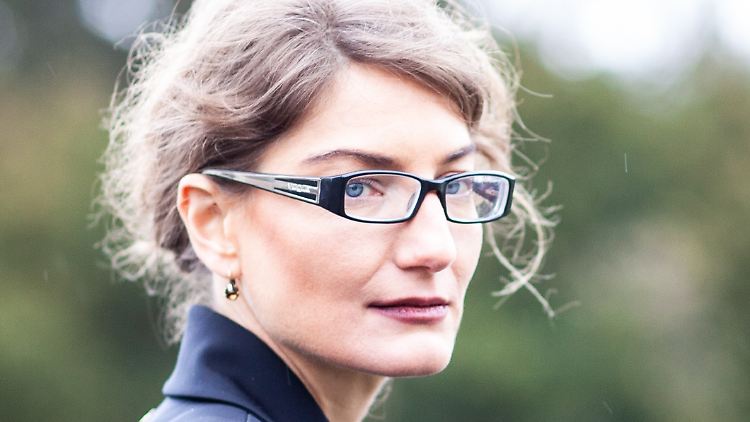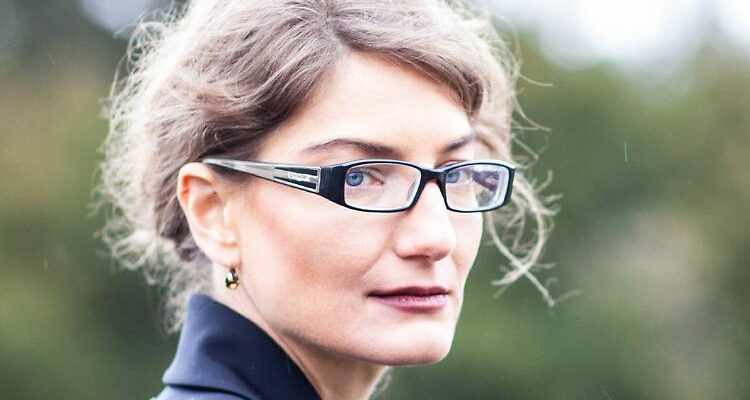The Afghan branch of the Islamic State terrorist militia has claimed responsibility for the serious terrorist attack in Moscow. Afghanistan expert Ellinor Zeino believes this is credible and explains the background in an interview with ntv.de. She has been expecting attacks for a long time and is warning of attacks in Germany, for example during the European Football Championship.

Dr. Ellinor Zeino lived in Kabul for several years for the Konrad Adenauer Foundation and has been heading the Southwest Asia program from Tashkent in Uzbekistan since the return of the Taliban. She is also a member of the Bundestag’s study commission “Lessons from Afghanistan”.
(Photo: Mary Papadopoulou)
ntv.de: Ms. Zeino, an IS group from Afghanistan has claimed responsibility for the attack in Moscow. Do you think that’s credible?
Ellinor Zeino: I think that is entirely credible and accurate. Since the Taliban came to power in Afghanistan, I have expected that the organization “Islamic State Khorasan Province” would expand its attacks, including outside Afghanistan. However, I had suspected that this was more likely to happen in neighboring countries and the region. It has been known for years that it also has targets outside of Afghanistan in mind. Its potential has been very great for a long time. The only question was when it would happen.
What kind of group is this?
The Islamic State is a strict Salafist, Sunni organization and comes from the Levant, primarily Syria and Iraq. The local branch in Afghanistan was founded in 2015 and in the following years controlled entire areas of the country at times. But then the organization was pushed back by the Taliban and Western troops. From 2020 onwards, it carried out major attacks against the Shiite Hazara minority, international facilities and critical infrastructure, for example on Kabul airport in 2021, during the major evacuation operation. Eventually it became quieter. But you had the feeling that they were just gathering together. It was the calm before the storm.
What distinguishes ISKP from IS?
One important difference is that it hardly has any foreign fighters. These are primarily Afghans from the Tajik ethnic group. So they don’t recruit fighters from all over the world, as was usual with the other branches of the Islamic State. This has not yet been formulated as a goal. The rhetoric focused more on local grievances and did not declare a global jihad.
Why was Russia targeted?
I can only assume that. In addition to the Taliban, Russia is the next possible enemy. It maintains increasingly close security cooperation with the Taliban to combat jihadist groups and in particular the Islamic State. In March, the Taliban sent a military attaché to Moscow, and the Taliban’s deputy foreign minister also recently visited Russia. In addition, Russia has long maintained military bases on the Afghan-Tajik border to combat jihadist groups and drug trafficking. Russia is therefore seen as another “infidel enemy” that needs to be combated specifically due to its security presence in the region.
Tajik passports are said to have been found in the getaway car. Why are these men so violent?
There has been an ethnic divide in the conflict within Afghanistan in recent years. The Pashtun-dominated Taliban are no longer able to politically integrate large parts of non-Pashtun society, especially the Tajiks, or to offer economic prospects. Within these population groups, the ISKP has become attractive to some. The local IS branch is now the biggest militant challenger to the Taliban government. It is the most powerful armed group in the country. However, the ISKP is not in a position to endanger the Taliban regime in the foreseeable future. The Taliban are too firmly in the saddle for that and exercise nationwide control. The ISKP carries out attacks, but has no longer controlled contiguous areas in Afghanistan since 2018. The ISKP itself accuses the Taliban of being unbelievers and not representing the pure doctrine.
The Kremlin speaks of alleged terrorist connections to Ukraine. What to make of this?
This could be a false claim. However, it is conceivable that the attack was logistically carried out via Ukraine. This does not have to have happened with the knowledge of the Ukrainian authorities. We have also seen in Afghanistan that countries in a state of war no longer have control over who is in the country and what weapons come into the country. It is therefore entirely possible that the terrorists planned and carried out the attack from Ukrainian territory. But that doesn’t have to mean that the Ukrainian government or the secret service had anything to do with it.
The terrorists tried to escape after their murders and apparently did not want to die as martyrs. One is said to have said that he had been promised money. Isn’t that completely out of character for religiously blinded Islamist terrorists?
Not necessarily. Of course, there are people who are so heavily indoctrinated and brainwashed that they actually want to die a martyr’s death. But I know from my experience in Afghanistan that it is very, very difficult and very expensive to put and keep a person in this condition. This usually requires drugs, massive pressure and promises of money to the family. This means that there are always fighters and assassins who hope to survive an attack.
The threat of terrorism is also increased in Germany, as Interior Minister Nancy Faeser has pointed out. Are the possible terrorists already there?
The threat of terrorism is actually great. Before Christmas, we saw that several attacks on Christmas markets were prevented. These were presumably also planned by the ISKP. These are dangers who were able to reach Europe undetected in the wave of evacuation after the Taliban came to power. But there could be more to come. We also saw that the German embassy in Pakistan had suspended its admission program for several months because there were indications that there were threats among those being admitted.
Can you filter out the dangers?
The program in Pakistan has resumed. A new security team was set up, including employees from the BKA, to carry out a threat check. Until then, the process was apparently full of holes. The vast majority of Afghans in Germany are neither radical nor militant and cannot do anything with this ideology. But it only takes one person to cause a lot of damage. Perpetrators can also come to Germany via other routes, not just via the admission program. We won’t be able to fully control this. Many are already in Germany and Europe, but we don’t know what their intentions are. The potential is there. Actually, it’s only a matter of time before some people manage to strike at us too.
There are great fears that an attack could occur during the European Football Championship this summer. Is this a prime destination?
That would at least be a conceivable soft target in which one could hit as many civilians as possible and attract as much international attention as possible. But in principle, all large gatherings of people are a potential target.
It sounds as if the time of major terrorist attacks is coming again, as we had ten or more years ago.
It was clear to all experts that the issue would come back to haunt us. The attention on Afghanistan has disappeared in recent years. Now the country has almost become a blind spot. We hardly get any information from there anymore because we hardly have any people on site anymore. Actually, that would also be important for our security. We lack the knowledge. That’s what worries me the most. I think there will be more attacks again. Because the problems and causes have not gone away. The relative calm of recent years may have been a calm before new troubled times. For the ISKP, Moscow is only an intermediate step on the way west.
Volker Petersen spoke to Ellinor Zeino
